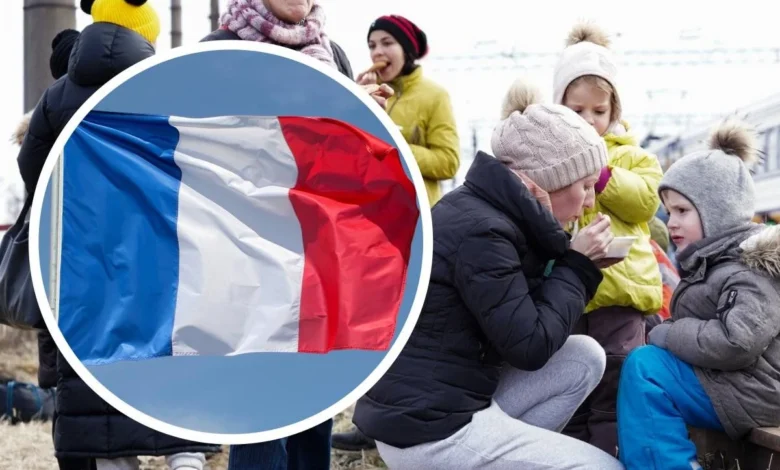Eviction of Ukrainian refugees in France: why the country is changing its policy

From the very beginning of Russia’s full-scale invasion of Ukraine, France became one of the countries that actively accepted Ukrainian refugees. The government provided them with temporary shelter, social assistance, and housing programs. Ukrainians seeking safety were given the opportunity to build a new life in French cities, integrate into society, find work and educational institutions for their children. But in 2025, the situation changed radically. The French authorities began reduce financial assistance, which led to the eviction of many Ukrainians from housing that was provided within the framework of state support programs.
Completion of the MLI program and its consequences
One of the main reasons for the wave of evictions was the end of the MLI program, which provided partial coverage of rent for Ukrainian refugees. According to the decision of the Department of Employment, Labor and Solidarity (DDETS), this program ends on June 30, 2025. This means that thousands of Ukrainians will lose support and will be forced to either look for new housing options or leave the territory of France.
In this regard, Ukrainians living in different regions of the country began to receive official notices about the need for eviction. This problem is particularly acute in the Loire-Atlantique region, where the association Une Famille Un Toit 44 acted as an intermediary between tenants and landlords. Now this organization has informed its wards that due to the termination of funding they must vacate the occupied premises.
What options are offered to refugees
The French authorities offer Ukrainian refugees several alternatives. If the person has a formal job, the association can apply for social housing, where a gradual reduction in rent will be available. For those who plan to stay in France permanently, there is an option to apply for refugee status, which opens up access to social benefits (RSA) and additional benefits. In other cases, DDETS offers relocation to temporary accommodation centers, but the number of places in such facilities is limited.
In addition, the association Une Famille Un Toit 44 reported the availability of several free places for refugees, but stressed that accommodation with pets is not possible there. Ukrainians are recommended to contact social workers who will help find optimal solutions according to their circumstances.
Why France is changing its refugee policy
Despite the fact that France actively supported the Ukrainians in the first years of the war, the situation in 2025 changed due to a number of factors. In particular, the French government is forced to review spending on social programs due to economic difficulties and an increase in the migration burden. The political situation in the country also affects decision-making regarding the reduction of aid for foreigners.
Against this background, Ukrainian refugees have already begun to gradually leave France. As of the end of 2024, more than 58,500 Ukrainians remained in the country, but in December 2024, their number decreased by 1% — about 600 people left France due to a change in the conditions of their stay.
So, the problem of eviction of Ukrainian refugees in France indicates a change in the country’s approach to supporting displaced persons. Although the state still provides certain opportunities for those who plan to stay, it is clear that Ukrainians will have to adapt to new conditions or consider other migration options. The French authorities, on the one hand, recognize the importance of helping Ukrainians, but on the other hand, they are faced with the need to cut costs, which puts many refugees in a difficult situation.
Further changes in the policy regarding Ukrainian refugees are possible ahead, but it is already clear that the conditions of their stay in France are no longer as favorable as at the beginning of the war. For many families, this means the need to make difficult decisions about their future, and for the Ukrainian authorities – the search for new mechanisms to support citizens who find themselves in a difficult situation abroad.





